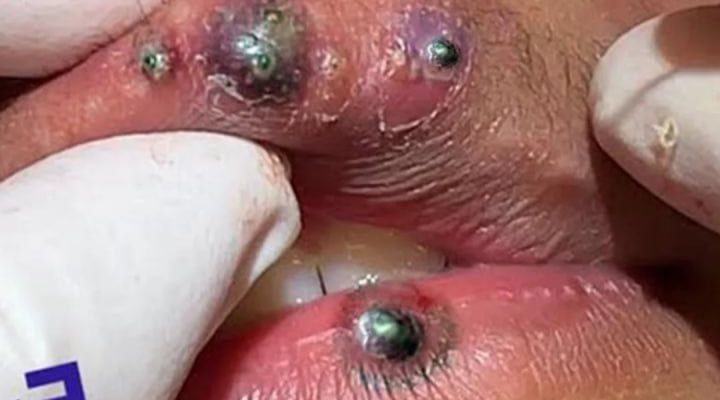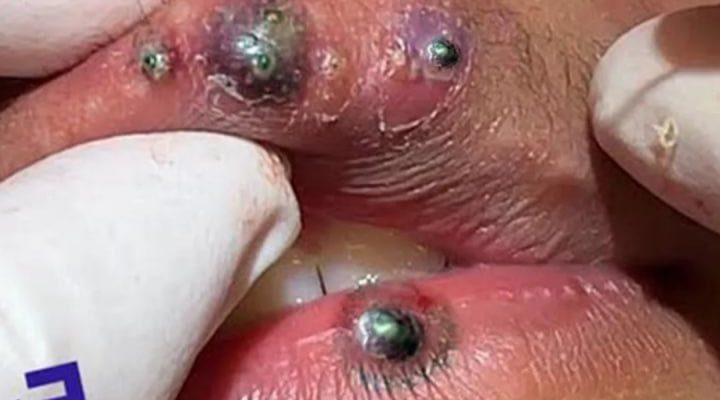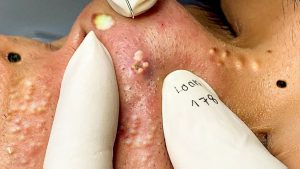Understanding Acne Blackheads: Causes, Prevention, and Treatment
Acne blackheads, also known as open comedones, are a common type of acne lesion that can affect individuals of all ages. They appear as small, dark spots on the skin, usually on the face, nose, chest, or back. While they are not as inflamed or painful as other forms of acne, such as pimples or cysts, they can be a persistent concern for many. In this article, we’ll explore what blackheads are, their causes, and effective strategies for prevention and treatment.
What Are Blackheads?
Blackheads form when hair follicles, or pores, become clogged with excess oil (sebum), dead skin cells, and other debris. The difference between blackheads and whiteheads is that, in blackheads, the pore remains open, allowing the contents to oxidize and turn black. This oxidation gives blackheads their characteristic dark color.
Causes of Blackheads
Several factors can contribute to the development of blackheads:
- Excess Oil Production: Overactive sebaceous glands produce more oil than the skin needs, increasing the chances of clogging pores.
- Hormonal Changes: Hormones play a significant role in sebum production. Puberty, menstruation, and hormonal imbalances can cause flare-ups.
- Genetics: Some people are genetically predisposed to acne and blackheads.
- Improper Skincare: Using products that are not suitable for your skin type, skipping cleansing, or not removing makeup can contribute to clogged pores.
- Environmental Factors: Exposure to pollutants, humidity, and dirt can aggravate blackheads.
- Diet: While the link between diet and blackheads is not fully understood, some studies suggest that high-glycemic foods and dairy may worsen acne symptoms.
Prevention Strategies
To reduce the occurrence of blackheads, consider incorporating the following strategies into your skincare routine:
- Gentle Cleansing: Use a mild, non-comedogenic cleanser twice daily to remove excess oil and impurities without stripping your skin of its natural moisture.
- Exfoliation: Exfoliating 1-2 times a week with a product containing salicylic acid or glycolic acid helps remove dead skin cells that can clog pores.
- Avoid Heavy or Comedogenic Products: Opt for oil-free, water-based skincare and makeup products labeled “non-comedogenic,” meaning they won’t clog pores.
- Use Retinoids: Topical retinoids (e.g., adapalene) promote cell turnover and prevent the formation of comedones.
- Regularly Clean Your Face Mask: If you wear face masks, wash or replace them regularly to prevent a build-up of oil and bacteria that can clog pores.
Effective Treatments for Blackheads
If you already have blackheads, several over-the-counter and professional treatments can help remove or reduce their appearance:
- Salicylic Acid: This beta hydroxy acid (BHA) penetrates deep into the pores to dissolve excess sebum and dead skin cells, making it a great choice for blackhead-prone skin.
- Benzoyl Peroxide: Though typically used for inflammatory acne, benzoyl peroxide can help reduce bacteria and clear pores.
- Topical Retinoids: These vitamin A derivatives are highly effective in preventing and treating blackheads by encouraging faster cell turnover.
- Clay Masks: Clay masks (e.g., kaolin or bentonite) can absorb excess oil and draw out impurities, making them ideal for treating blackheads.
- Chemical Peels: Professional peels using alpha hydroxy acids (AHAs) or BHAs can exfoliate and renew the skin.
- Comedone Extractors: Dermatologists can use a sterile tool to safely extract blackheads, reducing the risk of scarring and infection.
- Microdermabrasion: A professional exfoliation treatment that removes the top layer of dead skin, helping to unclog pores and improve skin texture.
Tips for Managing Blackheads
- Don’t Squeeze or Pick: Avoid squeezing blackheads, as this can cause scarring or lead to further inflammation.
- Keep Your Hands Off Your Face: Touching your face frequently can transfer oils and dirt, exacerbating blackheads.
- Stay Consistent with Skincare: Consistency is key to managing and preventing blackheads. Stick to a regular skincare routine, even when your skin seems clear.
When to See a Dermatologist
While many blackheads can be managed with over-the-counter treatments, persistent or severe cases may require professional intervention. If you’re struggling with blackheads that don’t improve or are accompanied by other types of acne, such as cysts, consider seeing a dermatologist. They can recommend prescription-strength treatments and perform extractions safely.
Final Thoughts
Blackheads, though a mild form of acne, can be a source of frustration for those who experience them. Understanding their causes and adopting preventive measures can help reduce their frequency. With the right skincare routine and treatments, it’s possible to manage blackheads effectively and achieve clearer, smoother skin.



